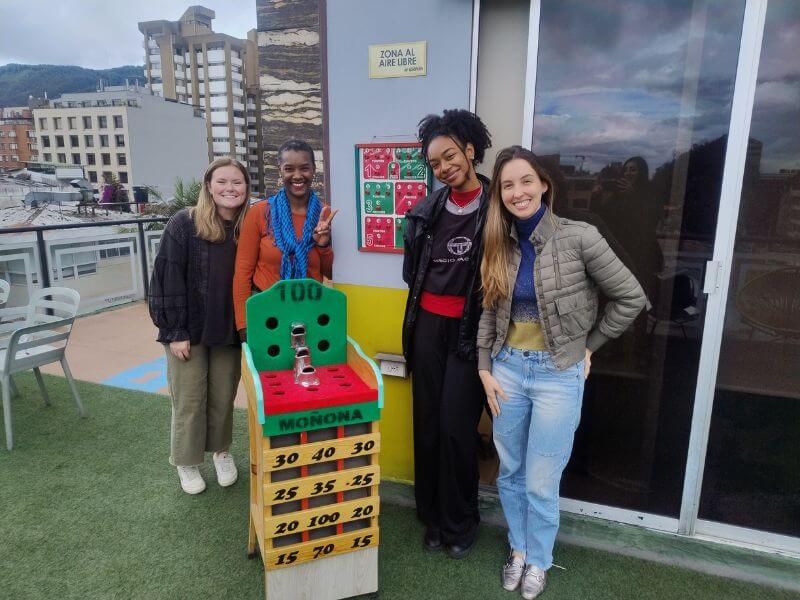10 Spanish words you can’t translate into English
The beauty of the language is that they are all unique!
Each language -or family of languages- has its structure, dialects, and unique words.
Some words simply don’t have an exact translation in other languages; in this case, we are talking about their English translation. It doesn’t mean you will not understand the meaning; you are! It is just that there is not an exact word in English that translates what we want to say in Spanish with this word.
It’s not like uno (one), dos (two), tres (three), or casa (house), mesa (table), or árbol (tree). Some words need further explanation.
In today’s article, we will explain the meaning of some of the words frequently used in Spanish which don’t have an exact translation in English.
In this case, we are not talking of slang but common Spanish words.
Here we go! 10 words that can’t be translated into English:
1. Estrenar (verb)
To use for the first time, brand new.
We use this verb when we wear or use something for the first time. It could be from wearing something new to getting something new. From new shoes, apartment, car, to even boyfriend/girlfriend!
Learn with some examples:
- Estoy estrenando estos zapatos.
These shoes are brand new/I’m wearing these shoes for the first time. - ¡Ven, te quiero mostrar el carro que estoy estrenando!
Come, I want to show you the car I just bought! - No veo a Camila hace rato. Está estrenando novio entonces no sale mucho.
I haven’t seen Camila for a while. She has a new boyfriend, so she’s not going out much lately.
2. Madrugar (verb)
To wake up early
We use this verb when we wake up earlier than “normal.” There is not a specific timeframe for this. It depends on each person’s sleeping routine. It could vary from 4am – to 8am+
Learn with some examples:
- No voy a salir hoy, tengo que madrugar mañana.
I am not going out tonight, I have to wake up early tomorrow. - A mi me encanta madrugar, me siento productivo/a en las mañanas
I love waking up early; I am productive in the mornings.
Or as the famous saying goes:
“Al que madruga, Dios le ayuda”
Literal translation: God helps those who wake up early.
English equivalent: The early bird catches the worm.
3. Trasnochar (verb)
To stay up late, to go to bed late.
Similar to the previous word, “trasnochar” doesn’t have a specific timeframe; it depends on each person’s sleeping routine.
Learn with some examples:
- Estoy super cansada hoy, ayer trasnoché.
I am super tired today; I went to sleep late last night. - No te trasnoches, acuérdate que mañana vamos temprano a montar bici.
Don’t stay up too late, remember we are going cycling tomorrow morning.
4. Desvelar(se) (Reflexive verb)
Sleep-deprived. To be unable to sleep.
We use this verb when we are unable to sleep, when something or someone is keeping us awake.
Learn with some examples:
- Ayer me desvelé, ¡mira esas ojeras que tengo!
I couldn’t sleep last night; look at the eyebags I have now! - Últimamente el estrés del trabajo me tiene desvelada.
Lately, the stress from my work is depriving me of sleep properly.
5. Tutear (verb)
To treat someone informally by addressing them as “tú” instead of the more formal “usted.”
As you might know by now, in Spanish we have different pronouns to refer to the second person singular “you”.
We say “tú” for informal conversations and “usted” for formal conversations.
Learn with some examples:
- El director de la empresa es muy tradicional, no le gusta que lo tuteen.
The company’s director is very traditional, he doesn’t like people treating him as “tú” - En Bogotá, nosotros tuteamos cuando hablamos entre amigos.
In Bogota we treat each other as “tú” among friends.
Tip: As the verb “tutear” exists, so does the verb “ustear”. Which has the same usage but referring to the pronoun “usted”.
6. Friolento (adjective)
Sensitive to low temperatures
We use this word to describe those who always seem cold and those who feel the cold more than others.
Learn with some examples:
- Yo soy muy friolenta, prefiero el verano que el invierno
I am very sensitive to the cold, I prefer summer to winter. - Mi hermana es muy friolenta, siempre usa saco.
My sister is very sensitive to the cold, she’s always wearing a sweater.
7. Quincena
Bi-monthly payment received for a job, payment day, or a period of 15 days.
Although this next word does have a direct equivalent in French (quinzaine), the closest word in English is “fortnight” or “two weeks.” Still, it doesn’t quite express what we mean by “quincena”
In Colombia and most of the Spanish-speaking countries, employees receive a bi-monthly payment which is referred to as “quincena”.
Quincena comes from the number “quince” (15). The payments are usually made on the 15th and 30th-31st of the month.
Learn with some examples:
- El centro comercial está lleno, ¡Debe ser quincena!
The mall is packed, it must be paid day! - No puedo comprar esto hoy, tengo que esperar a la próxima quincena.
I can’t buy this today, I have to wait for my next payment.
8. Estadounidense
Someone who is from the United States, “American”
This is an important topic in Colombia and the rest of Latin America.
In English, people usually say “America” or “American” to refer to someone or something from the United States.
In Spanish, mostly in Latin America, people don’t like to use that word. “America,” and therefore “American,” refers to the whole continent, from the top North to the top South, not only the United States.
Learn with some examples:
- Soy Estadounidense / Soy de Estados Unidos
I’m from the United States - Esa es una marca de ropa estadounidense / Esa es una marca de ropa de los Estados Unidos
That is a clothing brand from the United States.
To see how important is this topic, watch one of the latest songs from Residente, one of the most important Latin American artist, from Puerto Rico
This is not America
9. Anteayer or Antier
The day before yesterday.
We use these words to refer to the day before yesterday. We never say “the day before yesterday” (El día antes de ayer)
Learn with some examples:
- Anteater/antier fui a tomarme un café y me encontré con Pablo.
The day before yesterday I went for a coffee and met Pablo. - ¡Olvide el cumple* de Andrea! Fue anteayer/antier.
I forgot Andrea’s Birthday! I was the day before yesterday.
*Cumple = Cumpleaños
10. Querer, Te quiero (Verb)
To like, love and care for someone, but not to “be in love” with someone yet.
One of the most challenging words when it comes to relationships. In Spanish, we have a very clear distinction when it comes to expressing our feelings to someone.
For the English expression “I love you” we have two variations: “Te quiero” and “Te amo”.
“Te quiero” expresses affection; it doesn’t have a romantic or intimate connotation like “te amo” does, and it has a lighter sense of love and care. Let’s say “querer” is the light version of “amar”.
This is quite a subject! That’s why we have written a whole article about it, check it out here!
We hope you have learned and enjoyed reading this article. Visit our Blog and follow our Social media to learn more about the Spanish language and Colombian culture.
If you want to learn Spanish or improve your current level join any of our classes, online or in-person.













